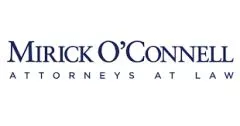The Equal Employment Opportunity Commission ("EEOC") recently issued guidance entitled, What You Should Know About DEI-Related Discrimination at Work (the "Guidance"). In the Guidance, the EEOC states that DEI initiatives, programs, and practices may violate Title VII of the Civil Rights Act of 1964 ("Title VII") if they involve an employer taking an employment action motivated in part by an employee's or applicant's race, sex, or other protected characteristic (which includes religion, color, and national origin under Title VII).
The EEOC explained that Title VII's protections apply equally to all workers, and there is not a higher standard of proof for individuals claiming they were subject to so-called "reverse" discrimination. Stated differently, the EEOC considers employees who are not in the minority of a protected classification to have equal standing to bring claims of discrimination before the EEOC.
In its discussion on what constitutes an "employment action" the EEOC stated that individuals can show discrimination if they suffered "some injury" or "some harm" due to disparate treatment in access to training (including leadership development programs), mentoring, sponsorship, or workplace networking or networks. Individuals may also have a claim if an employer-sponsored employee activity limits, segregates, or classifies employees or applicants based on race, sex, or other protected characteristics, including by limiting membership in workplace affinity groups.
Notably, the EEOC also stated that DEI training may create an unlawful hostile work environment, depending on the training's design, content, and execution. There is no further guidance on how a DEI training could be unlawful at this time.
Given the EEOC's strong language about affinity groups, employers are advised to review the purposes and practices of their workplace mentorship and affinity groups that may be related to employees' race, color, national origin, sex, or religion.
The content of this article is intended to provide a general guide to the subject matter. Specialist advice should be sought about your specific circumstances.


